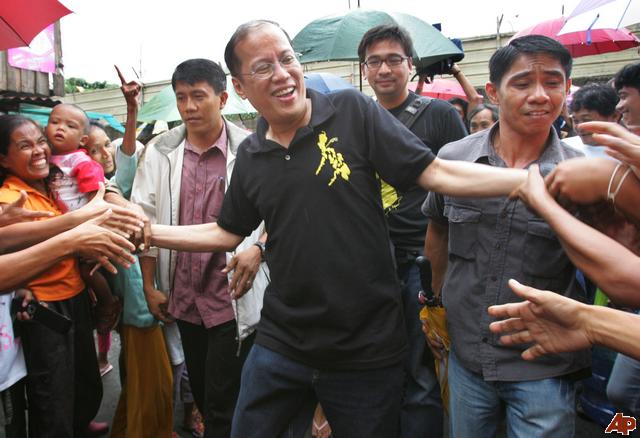A series of roundtable discussions centered on reforms have been organised. Measures filed and enacted during the 14th Congress have been evaluated.
But the question remains – will the next set of leaders be able to effect real change?
This is doubtful.
Ultimately, if Philippine society, from the polity to the populace, remains in thrall to a prevailing culture of self-interest, its leaders will remain relatively powerless.
This is not to impugn the motives of all putative reformers. The Philippines is no stranger to legislative action, and the legislature has already formulated some very good laws. But venal politics at all levels of the governing system intrudes even into matters that should be apolitical. As the Supreme Court’s recent ruling allowing President Arroyo to appoint the next Chief Justice (despite the two-month ban on appointments prior to the presidential elections) indicates, politicians in this country will always have the means to fiddle with enacted laws.
In addition, even security of tenure has failed to shield the bureaucracy from politics. A government employee’s chances for advancement usually depend on whoever is in power. A culture of obeisance permeates the civil service and several years of faithfulness to duty does not guarantee that one’s future career will be agreeable.
Further, an incessant concentration of power within the political elite has bred mass distrust in the government, exacerbating the vertical fragmentation of society. Civil society has grown stronger, but has remained unable to coordinate with the government to influence policy and foster public accountability. Specific measures such as a Freedom of Information bill would certainly help hold government to account, but experience suggests that legislators are hesitant to enact such bills into law.
Too much scope is given to the president’s discretion, which covers pork barrel disbursements, civil service executive appointments and 57 per cent of the national budget.
What is to be done?
The World Bank recommends reducing the president’s discretionary powers and designing incentives and disincentives to direct the behavior of government officials. The Bank’s experts have even prescribed specific action points to this end.
But only individuals within the electoral system can shape such reforms, and, as discussed, these individuals are vulnerable to the influence of political pressure. No reform, no matter how well intentioned, can combat this entrenched deficiency. The challenge, therefore, is to mould each individual in a way that benefits the country. This requires a common thread to bind all Filipinos together – a national values education agenda that will shape Filipino society.
What kind of values education is needed?
Piecemeal values education initiatives have been unsuccessfully attempted in the past and would not work. Instead, a core set of values, repeatedly communicated on a massive scale, is needed to modify the current mindset of Filipinos from every socio-economic background. Values such as love of country, care for the environment, prudence, honesty, and, perhaps, a simple morality of what is right and what is wrong, would be essential to the program. Inculcation of these values would act as a counterweight to the unhealthy concentration of power at the top of Filipino society, and would ensure that real change is able to flow through the political system.
Where should such values education be implemented?
Schools reach no less than 35 per cent of the population. They should be the heavy lifters in this reform. To pursue this agenda, schools would have to change how they view their contribution to development. Specifically, schools would have to focus their attention not just on quantitative targets, not just on skills acquisition, but also on the values that shape each individual’s character.
Implementing values education will be a long and hard process, but it is definitely worth the investment.
Glenndale J. Cornelio is from the Congressional Policy and Budget Research Department, Manila, Philippines.
This article is a finalist in the recent EAF Emerging Scholars competition.


Greetings! I read through your paper and would like to cite two or three of your statement on my own research. Thanks.
More power